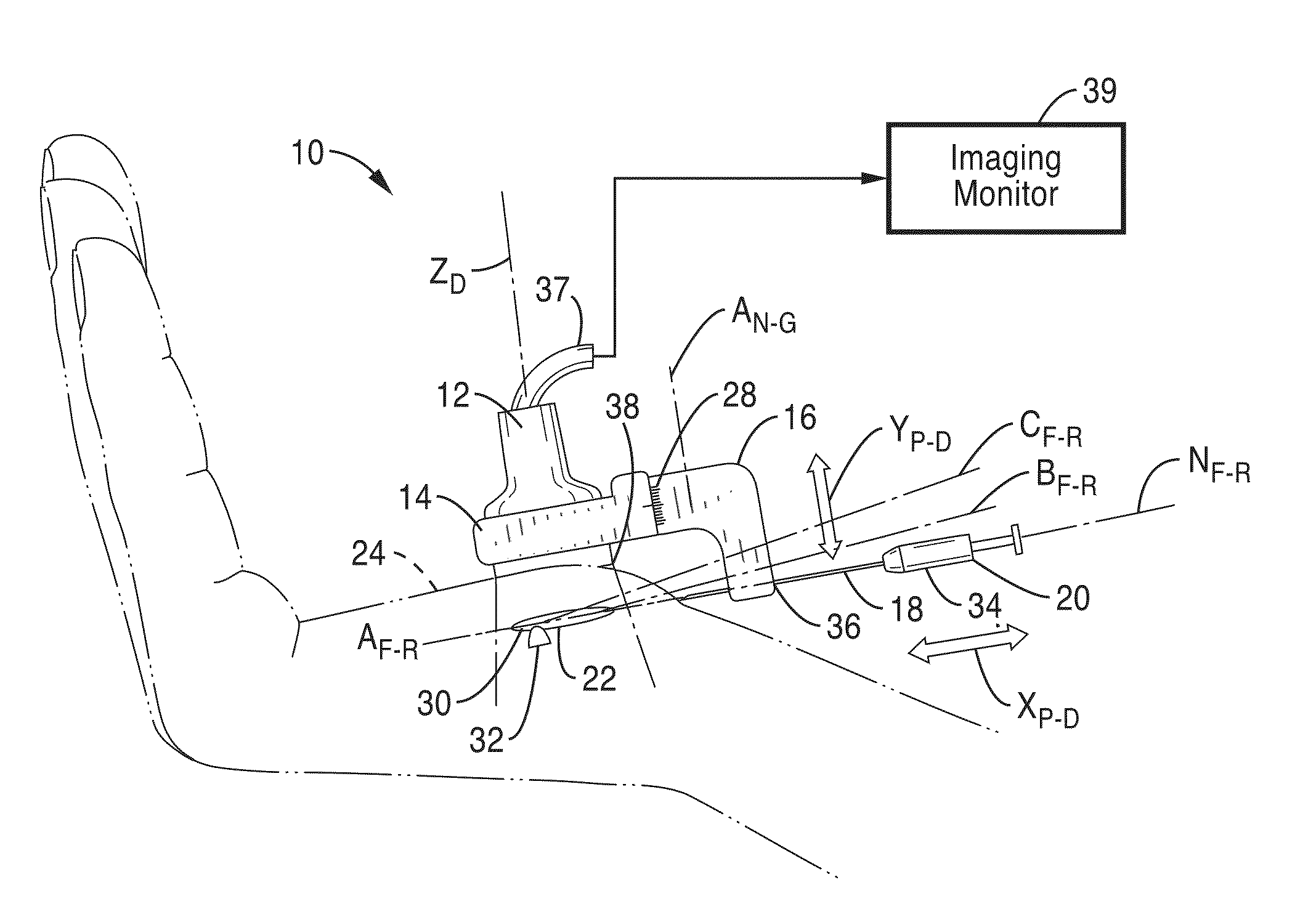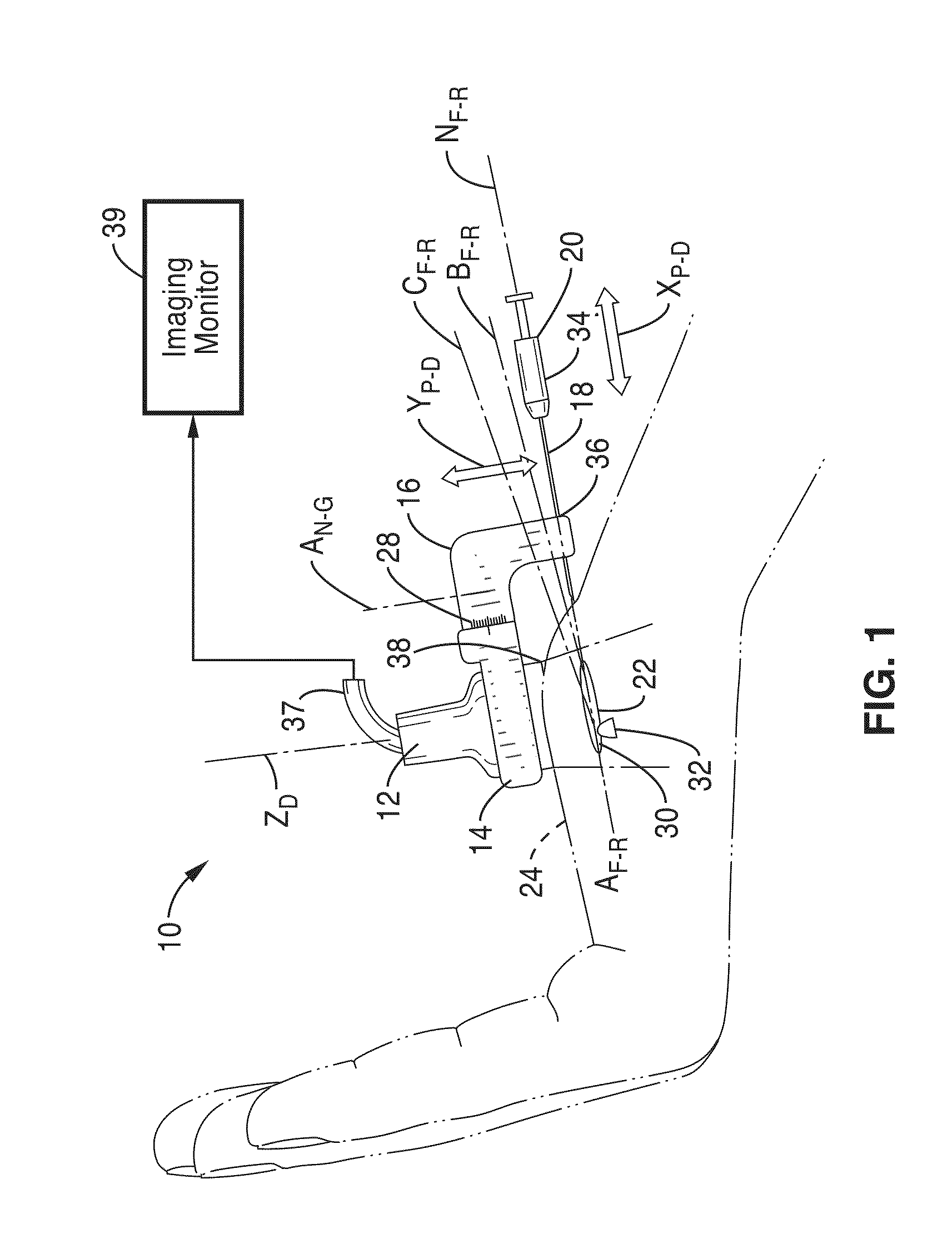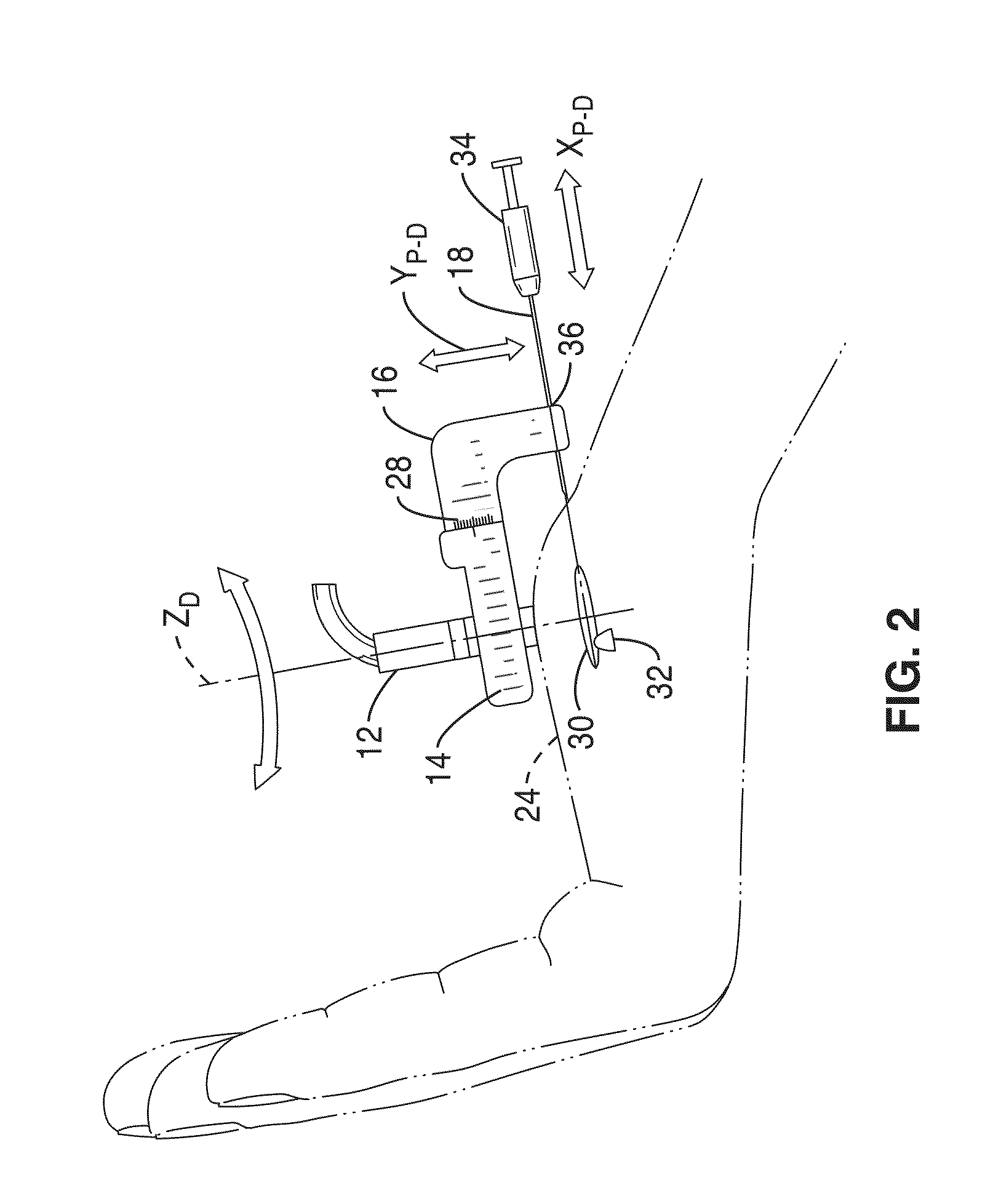Treatment of carpal tunnel syndrome by injection of the flexor retinaculum
a carpal tunnel syndrome and flexor retinaculum technology, applied in the field of carpal tunnel syndrome treatment, can solve the problems of pain, numbness, tingling characteristic of this disease, loss of wrist and hand strength and dexterity control of the carpal tunnel tendons, etc., to reduce the pressure on the contents of the carpal tunnel, reduce the symptoms of cts, and alter the stiffness of the flexor retinaculum.
- Summary
- Abstract
- Description
- Claims
- Application Information
AI Technical Summary
Benefits of technology
Problems solved by technology
Method used
Image
Examples
example
[0145]Tests were performed to better understand the dynamics of intracarpal tunnel pressure from proximal-to-distal in patients with CTS during quantified active use of the hand both before and after division of the transverse carpal ligament.
[0146]The test included 20 patients (21 hands: 10 left, 11 right), 11 female and 9 male (mean age: 55 years; range: 33-81 years), diagnosed with idiopathic CTS. In each patient, the diagnosis of idiopathic CTS was based on clinical signs and symptoms and confirmed by preoperative electrophysiological studies. The mean time from diagnosis to surgery was 2 years and 11 months (range: 2.5 months-15 yr. 3 months.). In addition, at least one steroid injection was administered to twenty of the affected hands and was used to confirm the diagnosis based on relief of symptoms. Patients were excluded from the study if there was any history of peripheral neuropathy, diabetes, thyroid disease, anatomic abnormalities of the wrist or hand, inflammatory joint...
PUM
| Property | Measurement | Unit |
|---|---|---|
| total volume | aaaaa | aaaaa |
| pressures | aaaaa | aaaaa |
| pressures | aaaaa | aaaaa |
Abstract
Description
Claims
Application Information
 Login to View More
Login to View More - R&D
- Intellectual Property
- Life Sciences
- Materials
- Tech Scout
- Unparalleled Data Quality
- Higher Quality Content
- 60% Fewer Hallucinations
Browse by: Latest US Patents, China's latest patents, Technical Efficacy Thesaurus, Application Domain, Technology Topic, Popular Technical Reports.
© 2025 PatSnap. All rights reserved.Legal|Privacy policy|Modern Slavery Act Transparency Statement|Sitemap|About US| Contact US: help@patsnap.com



